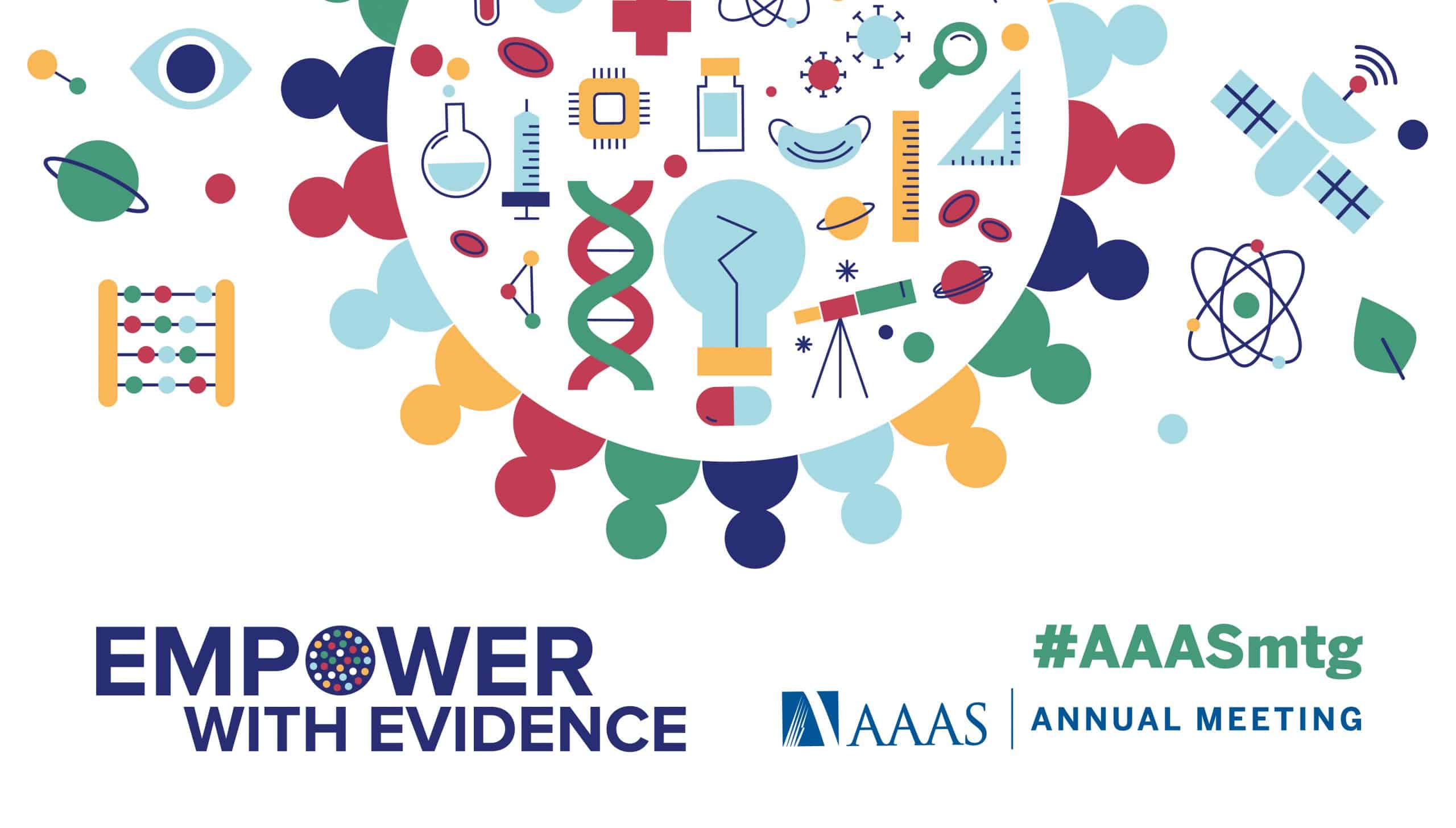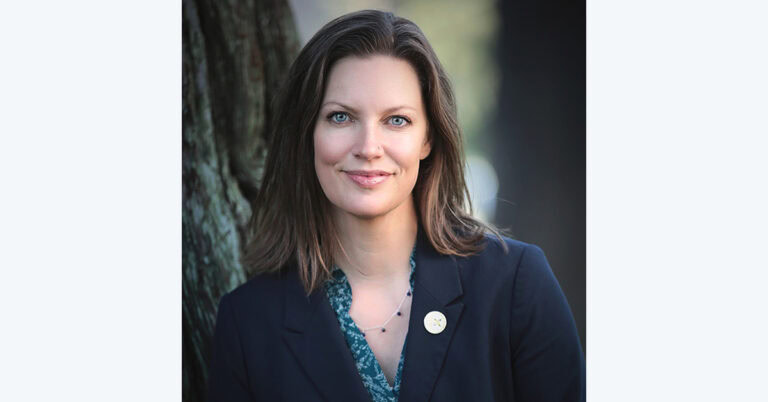Deputy Director
Watch: Science Policy for a More Resilient California: CCST Sessions at the 2022 AAAS Annual Meeting
February 15, 2022 | CCST Newsroom, CCST S&T Policy Fellows, Federal Research in California

SACRAMENTO, Calif.—From extreme heat to wildfires, California faces a variety of complex, interacting scenarios in adapting to climate change. The type of science policy advice and resources required to plan and act on these disaster resilience scenarios was the focus of CCST events during the 2022 Annual Meeting of the American Association for the Advancement of Science (AAAS).
CCST — the California Council on Science and Technology — organized three disaster-resilience Scientific Sessions as part of the 2022 AAAS Annual Meeting, in addition to a series of virtual meet-and-greets showcasing its state capital policy fellowship program for PhD scientists and engineers. A nonpartisan, nonprofit organization established via the California State Legislature, CCST engages leading experts in science and technology to advise state-level policymakers, from Legislative members and committee offices to Executive Branch agencies and departments.
All events were held remotely hosted as part of the all-virtual AAAS Annual Meeting format, via the virtual.aaas.org portal.
Browse the below to watch the CCST sessions at the 2022 AAAS Annual Meeting. Follow @CCSTorg and @CCSTFellows on Twitter for more event updates on #AAASmtg.
Friday, Feb. 18, 2022
Responding to Wildfires Amid Compounding Disasters
Details: https://aaas.confex.com/aaas/2022/meetingapp.cgi/Session/28814
Featured Topics and Invited Panelists:
Disparate Impacts of Wildfire on Undocumented Migrants
Dr. Michael Méndez, University of California, Irvine
Evacuating from Wildfires During the COVID-19 Pandemic
Dr. Stephen Wong, University of Alberta
Compounding Impacts of Wildfires Amid Power Losses
Dr. Gabrielle Wong-Parodi, Stanford University
Ongoing, complex, and intersecting disasters — including wildfires, extreme heat, power outages, cyberattacks, and the COVID-19 pandemic — are radically disrupting the ways in which people live and work. Many of these types of disasters are becoming more frequent and severe, and communities are increasingly faced with the need to respond to multiple disasters at the same time or in quick succession. Co-occurring disasters can overload the disaster response system by increasing the resources needed at a single point in time. Compounding disasters can create a host of new challenges necessitating modified response strategies. The increased frequency of uncontrolled wildfires is driven by climate change, development in the wildlands, and historic land use policies that have altered the natural fire regimes of ecosystems. Consequently, wildfires are increasingly co-occurring with other disasters and impacting wildfire response and recovery efforts. For example, in 2020, typical disaster response pathways like evacuations and congregate shelters to protect the public from wildfire needed to balance pandemic precautions like social distancing to reduce the spread of the COVID-19 virus. This panel discusses current scientific understanding of the drivers of fire disasters, post-fire recovery, the challenges posed when wildfires intersect with other disasters, and opportunities for new response strategies to help lessen the burden of multiple hazards at once.
(Moderated by CCST CEO Dr. Amber Mace; organized by CCST Director of Science Services Dr. Brie Lindsey and CCST Senior Science Officer Dr. Teresa Feo)
Friday, Feb. 18, 2022
Improving Community Resilience to Extreme Heat in a Changing Climate
Details: https://aaas.confex.com/aaas/2022/meetingapp.cgi/Session/28810
Featured Topics and Invited Panelists:
Advances in Remote Sensing to Inform Adaptation to Extreme Heat in Communities
Dr. Glynn Hulley, NASA Jet Propulsion Laboratory
Emerging Technologies to Mitigate Extreme Heat
Dr. Sumanjeet Kaur, Lawrence Berkeley National Laboratory
Human-Induced Climate Change Is Making Heatwaves Hotter and More Likely
Dr. Michael Wehner, Lawrence Berkeley National Laboratory
Communities around the world are experiencing record-breaking temperatures and suffering from more frequent heatwaves as a consequence of human-caused climate change. Many communities are at greater risk of extreme heat due to the “urban heat island” effect. Structures such as roads, pavement, and buildings absorb and re-emit more of the sun’s heat than natural landscapes including forests, parks, or bodies of water. Due to this “urban heat island” effect, dense urban cores are hotter than coastal and rural areas. Even small increases in average temperature can have dramatic impacts on fertility, learning outcomes, job performance, accident rates, quality of sleep, and overall health. Disadvantaged communities are disproportionately impacted by extreme heat — they are not only hotter due to less vegetation cover but are also less able to access technologies such as air conditioning that can provide relief when temperatures are high. This panel discusses current scientific understanding of how extreme heat impacts society and ways to equitably reduce the impacts of this increasingly common climate-related disaster.
(Moderated by Dr. Lindsey; Organized by Dr. Lindsey and Dr. Feo)
Sunday, Feb. 20, 2022
Building a Resilient Energy Grid to Respond to Escalating Hazards
Details: https://aaas.confex.com/aaas/2022/meetingapp.cgi/Session/28583
Featured Topics and Invited Panelists:
Grid Resilience and Intelligence Platform
Alyona Teyber, SLAC National Accelerator Laboratory
Lessons Learned from Extreme Weather Events
Dr. Varun Rai, University of Texas at Austin
Modeling and Characterizing Threats to the Grid
Dr. Jean-Paul Watson, Lawrence Livermore National Laboratory
Large-scale threats to the electrical grid in the form of extreme events are becoming increasingly common. Whether caused by naturally-occurring events such as wildfires or hurricanes or human-made threats such as planned power outages or cyberattacks, disruptions to the grid can cause catastrophic consequences — loss of life, economic losses, or even national security breaches. A measure of the grid’s resilience considers its ability to ensure there is enough energy generation to support demand, its ability to remain operational in the face of threats, and its ability to minimize the consequences of disturbances to the system. Increasing the resilience of the grid will require the deployment of new and emerging technologies, such as batteries, thermal storage, microgrids, and virtual power plants. Additionally, these technologies must be combined with access to data and tools for grid operators that can model the development of threats to the grid and inform decision-making during a developing potential disaster. Panelists take a broad look at the threats facing the energy grid and discuss the qualities that enhance its resilience, as well as the challenges inherent in measuring a system’s resilience. The conversation explores evidence-based technological and operational pathways for mitigating, responding to, and recovering from disruptions to the grid.
(Moderated by CCST Senior Advisor Dr. Jun Bando; organized by CCST Senior Program Associate Dr. John Thompson)

Virtual Exhibit Hall
CCST Science & Technology Policy Fellowship
Informational Booth and Prospective Applicant Office Hours
Virtual Booth: https://virtual.aaas.org/live/exhibitor/ccst
- Thursday, Feb. 17: 4:00PM – 5:30PM PST (Zoom Link)
- Friday, Feb. 18: 11:00AM – Noon PST (Zoom Link)
- Friday, Feb. 18: 2:00PM – 3:00PM PST (Zoom Link)
- Saturday, Feb. 19: 9:00AM – 10:00AM PST (Zoom Link)
- Saturday, Feb. 19: Noon – 1:00PM PST (Zoom Link)
- Sunday, Feb. 20: 9:00AM – 10:00AM PST (Zoom Link)
- Sunday, Feb. 20: Noon – 1:00PM PST (Zoom Link)
The CCST Science & Technology Policy Fellowship Program recruits PhD scientists and engineers for a year of public service and leadership training right in the heart of California policymaking — the state’s capital city of Sacramento. Fellows learn and grow from inside the public policy arena through their placements with Legislative Members and Committees, or with Executive Branch agency and department offices. Alumni have come to Sacramento with expertise as wide ranging as cell biology, anthropology, psychology, chemical engineering, astrophysics, ecology, and more — and they leave with honed policy savvy and indelible insight that ready them for a career in policymaking, or to bring back invaluable policy perspectives to academia or industry. This CCST program was launched in 2009 modeling after the AAAS Science & Technology Policy Fellowship Program, and has since inspired other U.S. states to launch their own state-level science policy fellowships.
Applications for the 2023 Fellowship cohort were due Mar. 7, 2022. Prospective applicants, passionate champions, and anyone interested are all welcome to stop by our virtual office hours to learn more about the impact and process of our science policy fellowship.
(Hosted by CCST Fellowship Program Manager Renée Cashmere and CCST Senior Program Officer Puneet Bhullar)
###
About the California Council on Science and Technology
The California Council on Science and Technology is a nonpartisan, nonprofit organization established via the California State Legislature — making California’s policies stronger with science and technology since 1988. We engage leading experts in science and technology to advise State policymakers — ensuring that California policy is strengthened and informed by scientific knowledge, research, and innovation.




